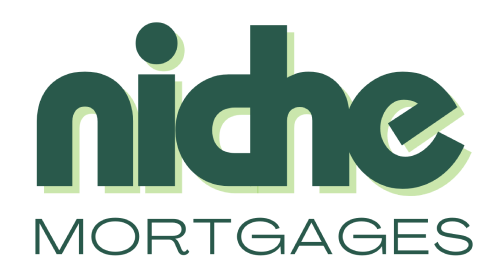Choosing between a fixed rate and variable rate mortgages is one of the biggest decisions homebuyers face. Your mortgage rate affects your monthly payments, long-term interest costs, and overall financial security. Whether you’re a first-time homebuyer or considering refinancing, understanding the differences between these two mortgage types will help you make the best choice for your financial situation.
What is a Fixed-Rate Mortgage?
A fixed-rate mortgage locks in your interest rate for the entire loan term, meaning your monthly payments remain consistent. These mortgages typically come in terms of 5, 10, 15, or 25 years, with the most common term being 5 years in Canada.
Pros of a Fixed-Rate Mortgage
- Predictability: Your mortgage payments stay the same, making it easier to budget.
- Protection from Rising Interest Rates: If market rates increase, your rate remains unchanged.
- Long-Term Stability: Ideal for those who want financial security and consistency.
Cons of a Fixed-Rate Mortgage
- Higher Initial Interest Rate: Fixed rates tend to be higher than variable rates at the start.
- Less Flexibility: Breaking a fixed mortgage before the term ends can lead to high penalties.
What is a Variable-Rate Mortgage?
A variable-rate mortgage has an interest rate that fluctuates based on the Bank of Canada’s prime rate. This means your payments can increase or decrease over time, depending on market conditions.
Pros of a Variable-Rate Mortgage
- Lower Interest Rates (Historically): Variable rates are often lower than fixed rates, saving you money over time.
- Potential for Rate Decreases: If interest rates drop, your mortgage payments may also decrease.
- Lower Penalties for Breaking the Mortgage: Typically, variable-rate mortgages have smaller penalties if you need to refinance or break your term early.
Cons of a Variable-Rate Mortgage
- Uncertainty – Monthly payments can fluctuate, making it harder to plan long-term.
- Risk of Higher Payments – If interest rates rise, your mortgage payments will also increase.
Fixed vs. Variable Which One is Right for You?
The choice between a fixed and variable mortgage depends on your financial goals, risk tolerance, and market conditions. Here’s how to determine which is best for you:
Choose a Fixed-Rate Mortgage If
- You prefer stability and predictable payments.
- You plan to stay in your home for a long time.
- You want to protect yourself from potential interest rate hikes.
Choose a Variable-Rate Mortgage If
- You can handle fluctuations in your monthly payments.
- You want to take advantage of lower initial interest rates.
- You are open to refinancing or breaking your mortgage early.
How Market Conditions Impact Your Choice
The best mortgage type also depends on current interest rate trends:
- When rates are low but expected to rise, a fixed-rate mortgage locks in a low rate before increases occur.
- When rates are high but expected to drop, a variable-rate mortgage allows you to benefit from future decreases.
It’s essential to monitor the market and consult with a mortgage expert to determine the best timing for your mortgage decision.
Can You Switch Between Fixed and Variable Rate Mortgages?
Yes. Some lenders allow you to convert a variable mortgage to a fixed mortgage during your term. However, switching from fixed to variable usually requires refinancing, which may involve penalties and additional fees.
Making the Right Choice Between Fixed and Variable Rate Mortgages
Both fixed and variable mortgages have their advantages and risks. If you value stability and predictability, a fixed-rate mortgage is likely the best choice. However, if you’re comfortable with some risk and want to potentially save on interest, a variable-rate mortgage might be worth considering. Before making your decision, it’s important to assess your financial situation, market trends, and long-term goals.
Fixed-rate mortgages offer stability and protection from rising interest rates, while variable-rate mortgages provide lower initial rates and potential savings. Your decision should be based on your risk tolerance, market conditions, and financial goals.
Not sure which mortgage is right for you? Contact Niche Mortgages today for expert guidance and personalized mortgage solutions.
About the Author

Jonathan Yien
Jonathan Yien is a seasoned mortgage broker at DLC Clear Trust Mortgages with a rich background in financial advising from his time at TD Canada Trust. He is dedicated to helping clients achieve their financial and homeownership goals.

